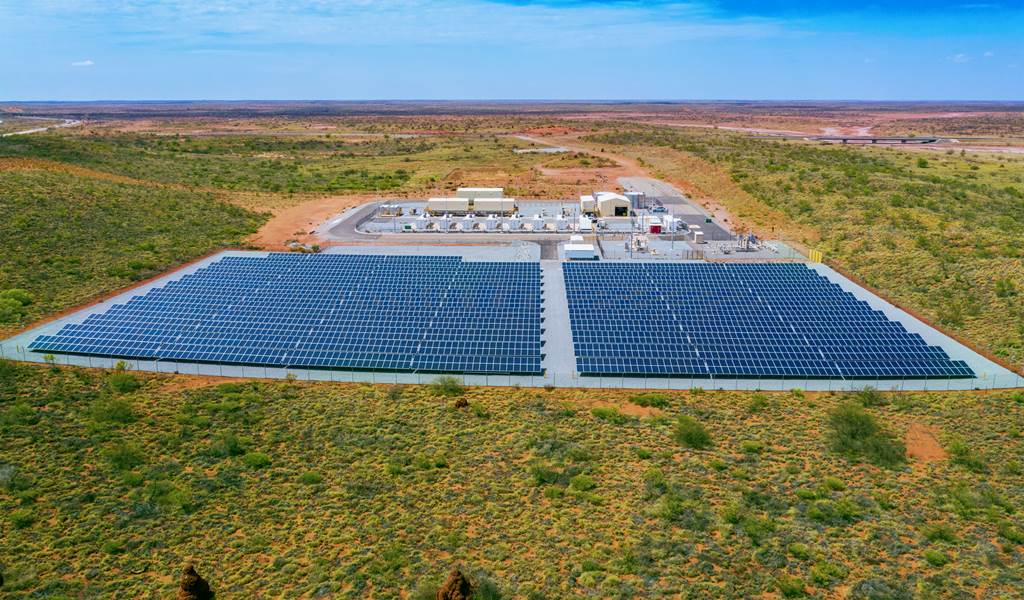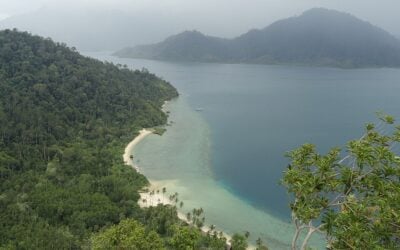
The small town of Onslow, Western Australia, is now powered almost entirely by renewable energy, and the utility behind that project wants to roll out the same tech across the state.
State-owned utility company Horizon Power said today that it will deploy distributed energy management system (DERMS) technology that helps coordinate the use of different resources like rooftop solar PV, battery storage and electric vehicles (EVs).
Enjoy 12 months of exclusive analysis
- Regular insight and analysis of the industry’s biggest developments
- In-depth interviews with the industry’s leading figures
- Annual digital subscription to the PV Tech Power journal
- Discounts on Solar Media’s portfolio of events, in-person and virtual
In the demonstration project at Onslow, the entire town ran on renewable energy and battery storage for a period of about an hour-and-a-half last year, thanks to a microgrid system which allowed it to operate as a self-contained electricity grid.
While that means Onslow still relies on natural gas engines and diesel generators, that reliance is greatly reduced, and the energy minister for Western Australia, Bill Johnson called the demonstration a “landmark step towards building a cleaner, brighter, renewable energy future for our state”.
The project showed that distributed energy resources (DERs) could be safely integrated at grid level, and Johnson, along with Horizon Power and software and controls providers PXiSE and SwitchDin, talked up the potential for it to be replicated widely.
Horizon Power said today that the technology enabled four times as much rooftop solar to be installed and integrated into the grid at Onslow, a town where more than 40% of homes have PV.
The DERMS works using predictive analytics to enable maximised penetration of renewable energy on the grid – predicting weather patterns, electricity consumer behaviour and so on – while also ensuring stability and security of electricity supply to homes and businesses.
It enables not just DERs but also centralised resources like large-scale solar PV and batteries as well as thermal power stations to act in concert together to meet local energy needs.
Horizon will introduce the technology into remote and regional parts of the state. The company’s general manager for technology and digital transformation said that around 60% of Horizon Power’s energy systems are already dealing with limits on rooftop solar.
The DERMS will “increase solar access for our customers, lower their energy bills, and help reduce emissions,” Ray Achemedei said.
The rollout begins in the coastal resort town of Broome early next year and the utility will progressively deploy the tech across all of its power systems by the middle of 2024.
“This is the technology that will underpin the transition to 100% renewable towns,” Achemedei said, noting that the paradigm shift from centralised fossil fuel generation sending power in one direction only to decentralised and decarbonised energy which is bi-directional or multi-directional in flowing around the grid presents challenges that Horizon Power is tackling head on.
Other initiatives from the utility include a tender for distributed microgrids for rural areas launched in October 2021.
Then in November last year, Horizon began Energy Storage in Regional Towns, a AU$31 million programme to equip nine remote towns in Western Australia with shared community battery storage.
That programme is funded by the state government and is adding about 9MWh of battery energy storage system (BESS) capacity to local energy networks. Western Australia’s government put battery storage and solar PV at the heart of its post-pandemic economic recovery plans, announced in June 2021.






